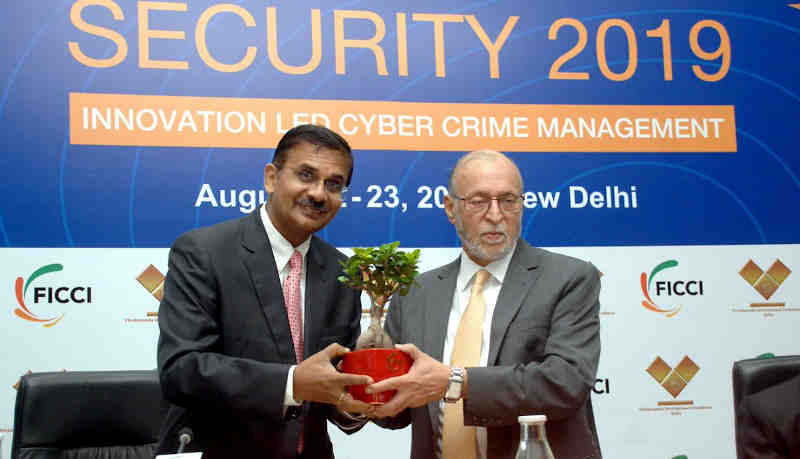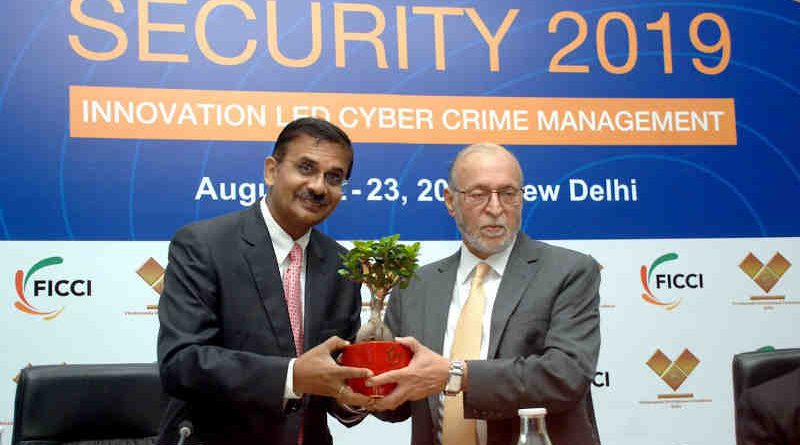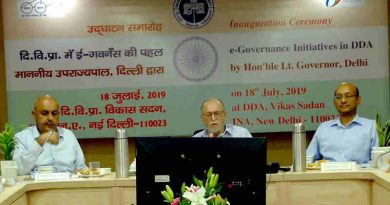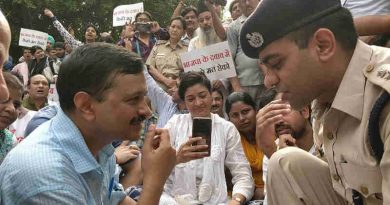Shortage of Skills to Handle Cyber Crimes: Delhi LG

Lieutenant Governor (LG) of Delhi Anil Baijal flagged the need for hands-on training of law enforcement agencies and a coherent global strategy to counter the alarming rise in cyber crimes.
He was speaking at the two-day conference on ‘Homeland Security 2019 – Innovation Led Cyber Crime Management’ organized on Thursday (August 22) by FICCI jointly with Vivekananda International Foundation.
Baijal said that there is an acute shortage of required skills in the law enforcement officials regarding cyber crime intelligence collection, data analytics, investigating techniques, and digital forensics.
“There is a need for more practical, hands-on training which is based on simulated environment. And, given the volumes involved, methodologies should be scalable,” he said, adding that cyber crime, which knows no boundaries, needed a coordinated and collaborative approach across various states and different countries.
Baijal said that a coherent, collaborative, global strategy is needed for countering transnational crimes like cyber crime. For this, he recommended revision of existing legal framework at national and international levels to adjust to the changing realities including recalibration of instruments like letters rogatory and extradition requests.
Lt. Gen. Dr Rajesh Pant, National Cyber Security Coordinator, National Security Council Secretariat, Government of India said that the average loss due to cyber crime globally is 2.5% of global GDP, which translates to a loss of more than Rs 200,000 crore for India, highlighting the seriousness of the issue.
Highlights of FICCI-EY Report on ‘Innovation Led Cyber Crime Management’:
- Formulation of a standard cybercrime taxonomy, which is to be followed by state and central law enforcement agencies (LEAs), to homogenize the cyber crime management in the nation.
- Cyber crime research and test beds to be built for investigations’ experimentation, introducing LEAs to simulated crime scenarios for effective investigation and closure of cases.
- A formal institutional framework to be built focusing on resolving challenges involving cyber crime threat intelligence sharing through collaboration between central and state police.
- Revisiting current law of the land such as the IT Act and IPC with respect to emerging use cases, crime and technology scenarios.
- Constitute a focused task force to study dark web ecosystem and present its findings to central and state functions.
- A joint India-based task force may be formulated where police from all the member nations jointly address international issues pertaining to cyber crimes and India can derive the benefit from it.
- Charting out next generation technological strategy to be leveraged by central and state LEA functions.
- Setting up of central and state technology analytic units which would act as information technology functions for LEAs, enabling accelerated investigation and thwarting cyber crimes at national level.
- Setting up of state and central centers of excellence (CoEs) equipping LEAs with investigative capabilities and aiding in continuous capacity building.
- Setting up of cyber crime forensics laboratories in each state to address the challenge of delay in examination of case data.
- Setting up of cyber police cadre in the formal police recruitment system.





